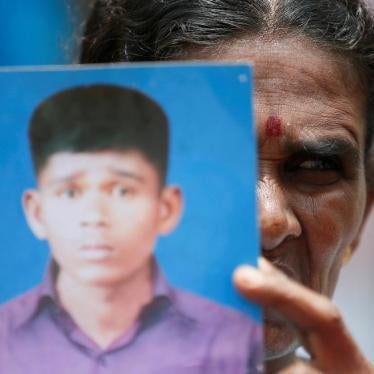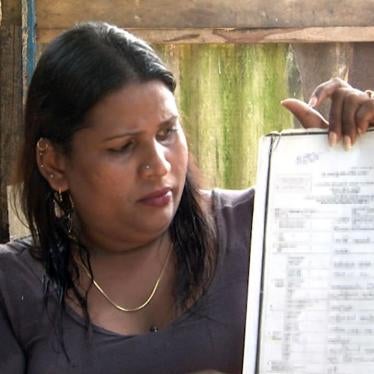Editor's Note: On September 6, in a unanimous verdict, the Supreme Court decriminalised same-sex relations, through the repeal of Section 377 of the Indian Penal Code. Chief justice Misra described Section 377 as “irrational, indefensible and manifestly arbitrary.” Sri Lanka’s own Penal Code criminalises same-sex relations, through Section 365 and 365a of the Penal Code, which is based on India’s iteration. Groundviews has noted the continued stigmatisation that members of the LGBTIQ community face through militarisation, surveillance, harassment and violence – including technology-based violence.
While there has been incremental progress, such as the gender recognition certificate allowing transgender persons to change their National Identity Cards and documentation, Sections 365 and 365a remain in effect, and LGBTIQ community members continue to struggle for acceptance. This short op-ed written exclusively for Groundviews from the Advocacy Director of Human Rights Watch highlights the continued rights abuses impacting the community, which the platform has extensively covered over the years.
The Indian Supreme Court’s landmark ruling sweeping a colonial-era law that criminalised same-sex sexual behavior into the dustbin of Indian history has made worldwide headlines. The credit must go, of course, first and foremost, to the brave petitioners, lawyers, and activists in India who led the fight. The Supreme Court of India has righted a terrible wrong. We hope it will set a precedent for courts in the Commonwealth and beyond that have similar laws facilitating prejudice, discrimination, and abuse against their LGBT communities.
The Indian Supreme Court decision referenced Pant versus Nepal, a 2007 Nepal Supreme Court decision, several times. That case led to a similar outcome in Nepal – an expression of dignity and equality before the law from the highest court to LGBT communities has been a boon for achieving tangible progress.
Not so in Sri Lanka. In 2016, Human Rights Watch released a report on the abuses the LGBT community faces in Sri Lanka, based on extensive interviews with LGBT people as well as with members of medical and other professional groups. Sri Lanka has near identical provisions to India’s in the criminal code, Sections 365 and 365A, which also criminalize same-sex conduct.
LGBT people from several different parts of Sri Lanka reported abuse by the police, with some reporting violence and sexual abuse. Transgender women reported the majority of abuses. Other LGBT people said that they were subject to extortion and bribery to avoid torture or criminal records. Victims of abuse had little or no access to medical care or legal aid. Many were unaware of the few institutions that do provide sanctuary to the LGBT community, most of which are based largely in urban centres.
Sri Lanka should now follow the example set by Nepal and India. The Sri Lankan Parliament should demonstrate broad national support for the rights of all Sri Lankans and promptly repeal the law. However, if the only resolution is through the courts, petitioners willing to challenge the law need to be enabled to confidently come forward and do so safely. For this, Sri Lanka needs to strengthen its victim and witness protection laws. The government should take this critically important step – not just for LGBT people but for all victims of abuse. The government should not stall on its protection for the rights of minority groups and other victims.
The verdict in India was celebrated across the world. Sri Lanka should be next to put an end to bigotry and discrimination based on sexual orientation and gender identity. As Sri Lanka debates a new constitution, it is critical to enshrine protection in the constitution for all minority communities. As Menaka Guruswamy, a key lawyer who led the challenge in India, noted, “The beauty of the constitution is that it compels us to unlearn our prejudices.”








